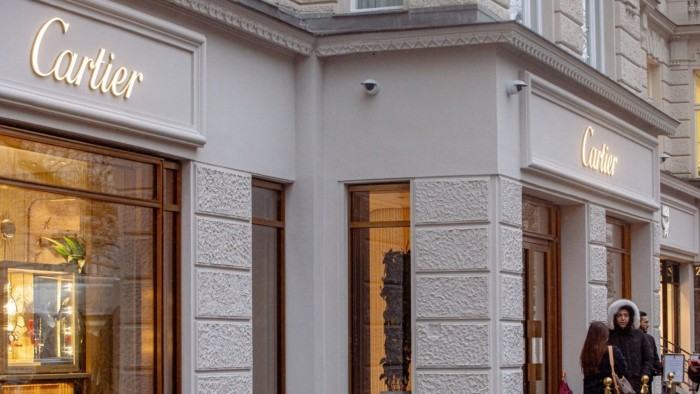Unlock the Editor’s Digest for free
Roula Khalaf, Editor of the FT, selects her favourite stories in this weekly newsletter.
Richemont chair Johann Rupert said the luxury group would avoid sudden, sharp prices that could spark a consumer backlash, as it contends with the impact of US tariffs.
Rupert said that being restrained on price rises in the past four years compared with some rivals had “benefited” the Swiss luxury group amid some customer backlash over the increases.
He also warned against creating the kinds of price differences that push clients to shop across borders, as happened last year when a weak yen resulted in Chinese tourists flocking to buy luxury products in Japan at lower prices.
“We will not make sudden rapid price increases,” Rupert said on Friday, adding that the company would make adjustments to account for issues such as currency volatility. “Obviously we need universal pricing otherwise people travel across borders . . . There is a bit of a backlash on some price increases among some competitors.”
Rivals including Hermès have already said they will push up prices in the US to offset the impact of tariffs there, while research from Citi has shown brands including LVMH’s Louis Vuitton have been increasing prices on some products in some regions in April. Richemont’s Van Cleef and Cartier have also increased prices on some products.
Many luxury brands have pushed through substantial price rises on their products since 2019, with the cost on some Chanel and Dior bags up by high double digits in that period, leading to criticism from clients as the heady days of the pandemic luxury boom fade. Both Richemont and Hermès, maker of Birkin bags, have been more restrained in their price rises over that period, according to analysts.
Business at Richemont’s jewellery houses continued to boom despite a tough economic environment as the Swiss luxury group reported full-year results on Friday, though its watchmaking business came under pressure.
Sales in its jewellery division, which includes Cartier and Van Cleef & Arpels, rose to €3.7bn in the three months to March 31, an 11 per cent increase on the same period a year ago excluding currency movements, beating consensus expectations.
However, sales in the watchmaking operation fell 11 per cent. Group sales increased 7 per cent to €5.2bn in the quarter, with revenues rising more than 10 per cent in all regions except Asia-Pacific, where they dropped 7 per cent.
Jean-Philippe Bertschy, head of Swiss equity research at Vontobel, said Cartier was “clearly a standout” brand at the moment, not only in jewellery but also in terms of the softness in the rest of the luxury watch industry.
The bank estimated sales of Cartier watches were up 8 per cent for the 2025 financial year, defying a drop of 13 per cent in the market as a whole. “Growth and profit are spectacular, especially when comparing to key competitor LVMH,” he said of Richemont’s results overall.
Richemont reported an annual operating profit of €4.5bn, down 7 per cent from the previous year as a slowdown in the watchmaking division contributing to the decline.
Rupert said he expected a recovery in the depressed Chinese luxury market but said US-China trade tensions meant the timeline for this was uncertain.
“The US are using the tariffs in a transactional manner, and I do believe that there are wise people in [the] Treasury in the US that do not wish for total cessation of world trade,” said Rupert.


